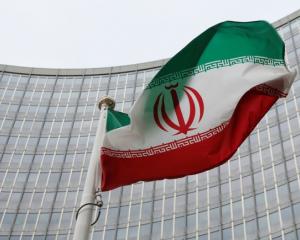"We have found her guilty of three charges out of the first five we have investigated," Nimal Siripala de Silva, minister of irrigation and a member of the impeachment committee, told reporters.
He said the charges against Shirani Bandaranayake included financial irregularities, conflict of interest, and failure to declare her assets.
"This is a one-sided political decision," said Vijitha Herath, one of four opposition legislators who withdrew from the impeachment panel on Friday, calling it unfair.
A lawyer for Bandaranayake said she had been framed, describing her as the victim of a "set-up job".
"It's a joke. Obviously the report has been written before the evidence-giving is finished," the lawyer told Reuters.
Tension has risen between the judiciary and government since President Mahinda Rajapaksa's party filed a motion against Bandaranayake, Sri Lanka's first female head of the Supreme Court, in parliament last month.
Bandaranayake had come under criticism from the government for ruling against a bill proposing a budget of 80 billion rupees ($614 million) for development, saying it had to be approved by nine provincial councils.
The ruling angered the government and its backers, some of whom accused the judiciary of overstepping its authority.
MISCONDUCT ALLEGATION
Under impeachment proceedings launched last month, parliament speaker Chamal Rajapaksa, the president's elder brother, appointed a committee of 11 members, seven of them from the ruling party, to investigate 14 charges against Bandaranayake, ranging from not disclosing her wealth to professional misconduct.
The United States, the United Nations and the Commonwealth have raised concerns about the process and called on the government to ensure the independence of the judiciary.
Analysts say the case could add to international scrutiny of Sri Lanka. It is already under pressure from the United Nations High Commissioner on Refugees to prosecute soldiers over the deaths of thousands of civilians during the final months of a three-decade war with Tamil rebels that ended in May 2009.
Parliament is expected to vote on the impeachment when it sits after Jan. 8. Rajapaksa, whose party has a more than two-thirds majority, needs only 113 votes in the 225-member legislature to remove the chief justice from her post.












